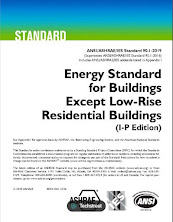A Senior Sales Engineer's Tale: the Good, the Bad, and the Ugly

Introduction I'm a senior sales engineer with over 15 years of experience, and I've been working in the HVAC industry since 2008. I was also a team leader for 15 months, from October 2021 to January 2023, before getting promoted to my current position. In this blog post, I'm going to share some of my experiences as a sales engineer, and give you some insights into what it's like to work in this field. The Good One of the best things about being a sales engineer is that I get to work on challenging and interesting projects. I've been involved in over 170 projects since I joined Trane Philippines - helping with designing and commissioning some of the most complex HVAC systems in the Philippines, and it's always rewarding to see a project come to fruition. Another great thing about being a sales engineer is that I get to meet and work with a wide variety of people. I've had the opportunity to meet with clients from all walks of life, and I've lear...
